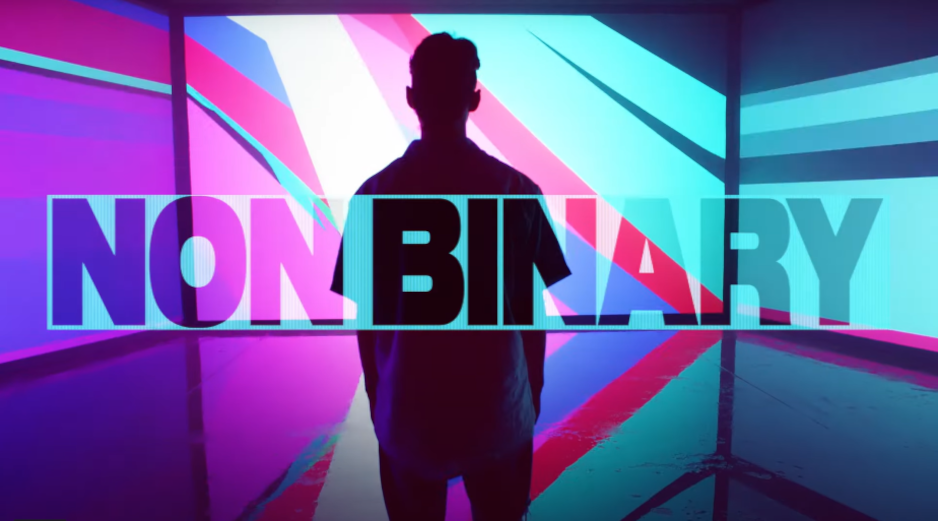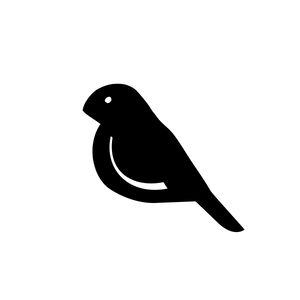
Tired of Being Gendered Online? Here’s How Spark Is Fixing That

“If you’ve never had to think about your gender, you probably haven’t realised how often you get gendered online,” says Halie Craig, senior digital art director at Colenso BBDO - and any non-binary person would tell you the same when it comes to online forms and overall gender identity online. Inclusivity online has always been an issue, but it’s only in recent years, with the rise of neo-pronouns and more expansive gender norms (or the abolition of those overall) that the discourse around online identity has picked up.
A seemingly simple choice between ‘male’ or ‘female’ in an online form can not only warrant the question “Why am I even being asked this,” but also brings distress to people who struggle to identify with either. For cisgender people, this experience is just another tick online, a simple movement of the cursor, but for anybody else, things might get more complicated. Niche as it may seem, that sort of exclusion and ‘othering’ has serious mental health implications in the long term. Let alone when it comes to the notion of being accepted as a whole.
This is precisely why FINCH’s director Zia Mandviwalla collaborated with Spark on their launch of Beyond Binary, a code designed to reflect all of the true complexities of modern gender. The code is a push for a more inclusive and expansive internet, and the film for the campaign encourages businesses to move away from M/F choices on online forms and even question whether they need to collect information on the gender of their users.
“To not feel seen or accepted for who you are is devastating. Beyond Binary is more than just code, it offers the freedom for people to be seen as they truly are, educating society and businesses about the complexities of gender identity. It was a privilege to get to know our cast and have them share their stories and experience with us,” says Zia.
The film, features members of the LGBTQIA+ community sharing their stories and struggles online and also touches on other aspects of life embedded with gender notions - the abundance of gender reveal parties, makeup commercials, clothing, etc. It shows that what might seem like a mere moment for someone, for another can be a distressing and overwhelming experience.
Beyond Binary’s code, co-created with New Zealand’s rainbow communities, encourages businesses to re-think their reasons behind collecting gender data and gives users more freedom for varied forms of self-expression, helping them to navigate the digital world in a more accessible way.
LBB’s Zoe Antonov spoke to Colenso BBDO’s Haylie Craig, to find out how the Beyond Binary code works, why it is important and where the internet is headed from now on when it comes to inclusivity and identity.
LBB> What was the idea behind this campaign and the initial conversations surrounding it?
Haylie> Imagine being left out of the internet. No place for you here.
If you’ve never had to think about your gender, you probably haven’t realised how often you get gendered online. But for individuals identifying beyond the binary gender of male and female, it affects them every day.
Often businesses default to asking for gender without considering how it might impact people on the other end of the form. It’s an issue much bigger than simply a moment – data collection informs everything from targeted ads, personal ID, marketing, innovation, recruitment, digital experiences, representation, physical space designs, products, services etc. When you look around, gender data impacts so much more than you might realise. This can have very real negative impacts on some people.
We wanted to do something to make a difference. Beyond Binary Code is a simple piece of code that can be added to any website to make data forms and fields more gender inclusive. The film helps to provide a platform to amplify the voices of real people, who live these experiences daily.
LBB> Tell us more about the code itself and how it works.
Haylie> Through a single piece of code that can be added to any website, Beyond Binary Code instantly updates forms and fields to be more inclusive. The code is part of a full toolkit that helps businesses understand, first, whether they need to collect gender data. It also informs how to create safer spaces on and offline for customers and employees, as well as providing other supporting materials.
If you want to get technical, Beyond Binary Code is code that can be integrated into your stack and configuration. It's best-practice code for standard HTML and common CMS platforms, and can be adjusted to fit legacy systems or complicated stacks, depending on your organisation’s nuances and obligations.
LBB> What has the response from wider audiences been to the campaign so far?
Haylie> Responses so far have been super positive and heartwarming. It's great to see Spark (a telco committed to helping all of New Zealand win big in a digital world) and OutLine (an all-ages Rainbow mental health organisation) lead the charge and embrace an ongoing commitment.
A lot of people didn’t think they would ever see a business take a stance on this issue.
LBB> How important do you think it is for creative media to engage with such social conversations and what difference does it have the power to make?
Haylie> What we see on our screens has a huge impact. I think if you are going to engage in topics like gender identity, or with any minority, then you need to do your research. It’s very important to talk to an array of people from those communities facing the issue throughout the project. We collaborated and worked with a broad range of people who identify as non-binary, and with OutLine, for ongoing guidance. Minority representation in creative media is, at times, still a bit of a token tickbox approach for diversity. People see right through that. But if it’s genuine and has a purpose you’ll be having a bigger impact than you realise.
LBB> What was it like working with such a fragile topic, as well as with the volunteers willing to share their stories?
Haylie> I have huge respect for our talent featured in the film and on the website. They aren’t fragile - they are brave, strong, resilient. They have spent a lot of time thinking about who they are and how they identify, and because of this, they could all communicate very clearly and in an empowering way. Our talent were so open and honest, which just encouraged the whole team to make sure this idea gets out into the world.
LBB> Do you believe that the near future will hold more opportunities for non-binary identifying people to express themselves online with the help of initiatives such as your own?
Haylie> Yes, I hope that in the near future we can look back at this project and think, ‘wow we had to encourage businesses and brands to actively do this’. It should already be a normalised standard online and offline.
LBB> How long did this project take and what were the most challenging parts of it? What about the most rewarding?
Haylie> It has taken almost two years, but we wanted to do this idea the right way and so did Spark and OutLine. We did a significant amount of research, and worked with non-binary communities and businesses to ensure the code is useful but also not triggering. Spark has made changes to their systems, physical spaces, etc to do this project properly. It’s not just a campaign for them - it will be an ongoing commitment.
The most challenging part was getting people to understand the magnitude of this problem and its ripple effects. It seems like a small data point but it has a huge impact. The film helps with this. We want to encourage wider society to help, because this problem doesn’t just sit on the shoulders of the non-binary community to fix. We need everyone to help make this happen.
The most rewarding part is lifting up the voices of the non-binary communities, and showing that they aren’t alone in this.
LBB> Any final thoughts?
Haylie> Go to wwww.spark.co.nz/beyondbinarycode and download the code. Integrate it into your website. If you aren’t sure how to get your manager, stakeholders, HR, workmate in the business you work for onboard, send them the film and this presentation. If they don’t feel or act on anything after all this then they are a robot.













